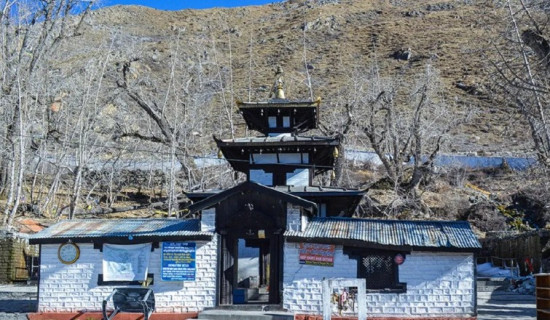- Wednesday, 31 December 2025
Dignity Of National Honours
It is a common tradition on part of a state to honour its citizens in recognition of their outstanding contributions to the society. The state as a guardian of people has not only the responsibility of protecting their life and property but also to appreciate their deeds having positive impact on the community. It should often be grateful to the dutiful and diligent citizens whose acts have inspired the fellow citizens and played an important role in promoting inherent societal values and bringing about desired level of change in the nation. Orders, awards, decorations and medals conferred on eligible people epitomise the spirit of sacrifice, courage, service, selfless dedication, integrity and patriotism. Honoured persons often feel proud of their country as the latter acknowledges their service to the nation.
However, no questions should crop up while bestowing the honours of national prestige to such personalities. For the unnecessary dispute undermines the worth of such honours. If state medals and honours are conferred on a person who has not made notable contribution to the country, this will not only berate the honours but also hurt the sentiments of genuine people who deserve them. Lack of sensitivity and seriousness gives rise to various anomalies and negative impression about the state decorations. The authorities must abide by the related laws as well as popular sentiments while presenting the orders and medals to different personalities. Nepal government has been conferring honours to the citizens from different walks of life for their remarkable contributions to the country on the day of Nepali New Year.
The process and procedure of bestowing the national honours should be judicious so that there will be no room left for dispute or questions. This adds to the dignity of the honours and fame of the personalities who receive them. The dignity, prestige and value attached to the honours will discourage the unexpected tendency like refusing to accept them. Such a decision is purely personal but nobody should be given a room for criticising the procedure. According to news report of this daily published Monday, the government amended the Decorations Rules-2008 in 2020 to make sure that no dispute arises while conferring orders, decorations and medals on various personalities. The Rules have limited the number of persons receiving such civilian honours to not more than 220. Despite this clear legal provision, the number of the recipients has dramatically increased every year. Their number stood at 998 in the fiscal year 2021/22 and 993 in 2022/23.
There are mainly four types of honours of Orders - Nepal Ratna, Rastra Gaurav, Rastra Deep and Janasewa Shree. As per the amended Regulations, 100 persons are provided with Orders and 50 each with Alankars and medals. Nepal Ratna Order is the highest civilian award bestowed on only one person while Rastra Gaurav Order is the second-highest presented to two dignitaries. Currently, around 35 different types of honours, including order, alankars and medals are decorated. As the tendency of providing honours through access to power creates anomalies. Such a tendency may make people to rethink and refuse the honours. One former chief secretary, talking to this daily, has complained that decorations have been distributed on the basis of rank, profile and class, ignoring the contribution of the people who may even come from lowest rung of the society. In this regard, an independent body should be assigned to identify and recommend the persons eligible to receive such prestigious national honours.
















